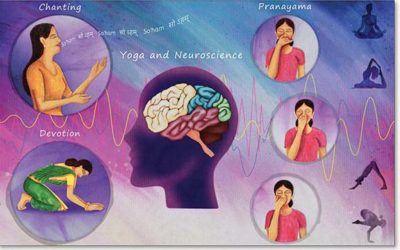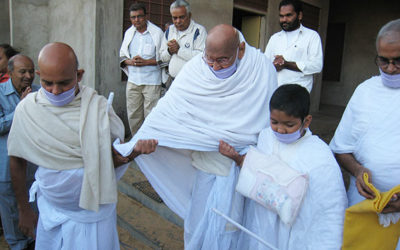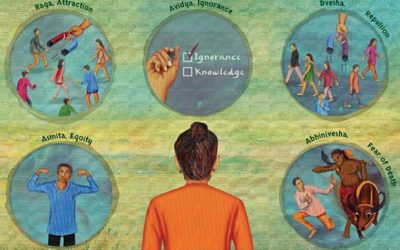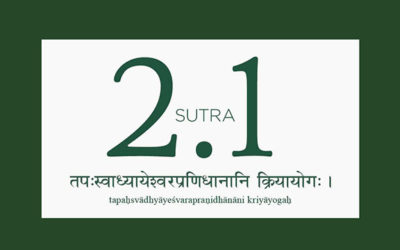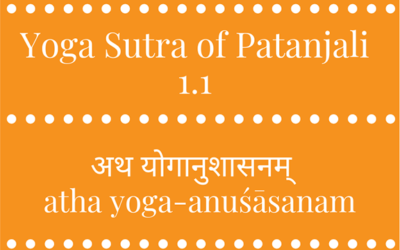Explore Latest Posts
Explore Yoga Sutras Videos
More Articles
Light on the Yamas & Niyamas—Satya: What About Truth?
Satya, truth, stands second in Patanjali’s list of virtues or “restraints.” Most often rendered with respect to speech, like ahimsa, satya broadens to include thought and deed. Under the rubric of ahimsa, the commentators advocate that truth not be spoken unkindly,...
The Science of Yoga, Part 6: Bringing It All Together
In the last installment of this six-part series, Eddie Stern brings his analysis of Yoga and neuroscience to a close and a final, very illuminating conclusion. Let’s come back to Kriya Yoga to pull this all together. The components of Kriya Yoga, as mentioned earlier,...
The Science of Yoga, Part 5: Yoga and the Brain Systems
In this penultimate installment of this series on “The Science of Yoga,” Eddie Stern takes us for a further tour of the brain and its relationship with the kleshas, as taught in the Yoga Sutras of Patanjali. The Limbic System, Raga and Dvesha The limbic system is in...
The Science of Yoga, Part 4: Yoga and Brain Functions
I wondered if I could look to Western neuroscience for clues on how, by working directly with the nervous system, we could pave a pathway to samadhi. I had an inkling through my studies of the autonomic nervous system—and in particular of homeostasis (the body’s...
Light on the Yamas & Niyamas: Awakening to Ahimsa
In this column, Rev. Dale Ann Gray offers reflections on the yamas and niyamas of the Yoga Sutras, incorporating insights from classical Nondual Yoga. In this article, she unpacks the first yama, ahimsa (non-violence, non-harming). In the Yoga Sutras of Patanjali,...
The Science of Yoga, Part 3: The Five Kleshas
In his translation and commentary on the Yoga Sutras of Patanjali, Swami Satchidananda gives this introduction to the five kleshas: “Sri Patanjali gives the obstacles (kleshas), which will then be explained one by one. The order is significant: because of ignorance of...
Light on the Yamas & Niyamas: Introduction
In this new column, Dale Ann Gray offers reflections on the yamas and niyamas of the Yoga Sutras, incorporating insights from classical Nondual Yoga. In this article, she offers an overview on the distinctions between the dualistic philosophy of Patanjali’s Yoga and...
The Science of Yoga, Part 2: Kriya Yoga
Patanjali called the things that cause us to suffer kleshas, or obstructions. He named five of them. The first, avidya, is that we do not fully know who we are. Avidya is often translated as ignorance. The ignorance it refers to is that, while we might know a lot...
Raja Yoga Now: The Beginning
The Yoga Sutras of Patanjali begins with a call that reverberates through the ages: Atha Yoganusasanam: Now the exposition of Yoga is being made. It is an invitation to seekers of truth everywhere, irrespective of place, time or circumstance. It offers a universal...
Right Relationship with Our Bodies
In this episode of the "Two Old Fogey Yogis" podcast, our two yogis continue their discussion of aparigraha, the fifth and final yama, with an examination of two of its very subtle aspects: the teaching of not receiving gifts, and of one’s relationship to the physical...


